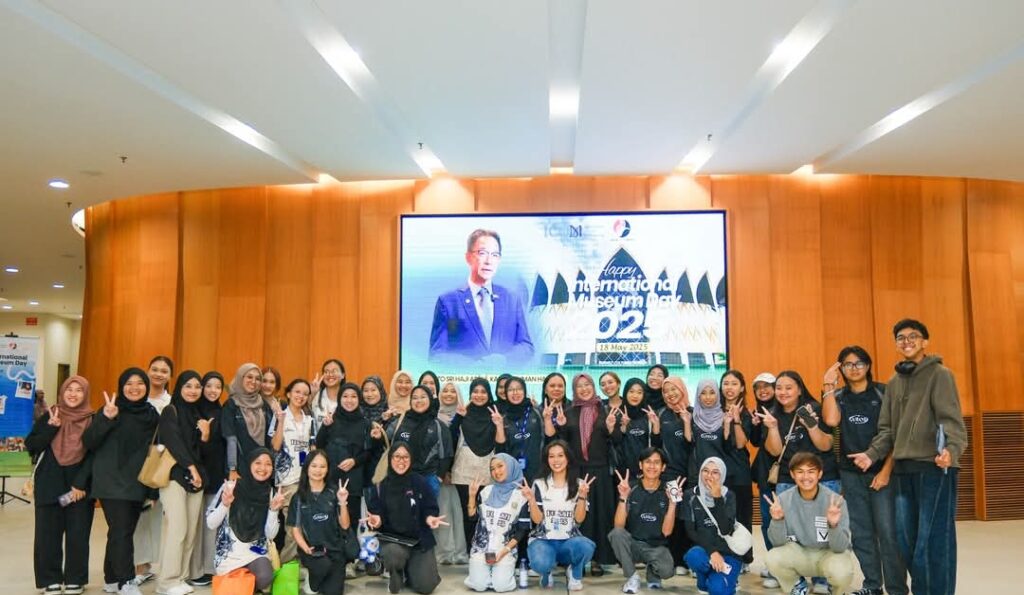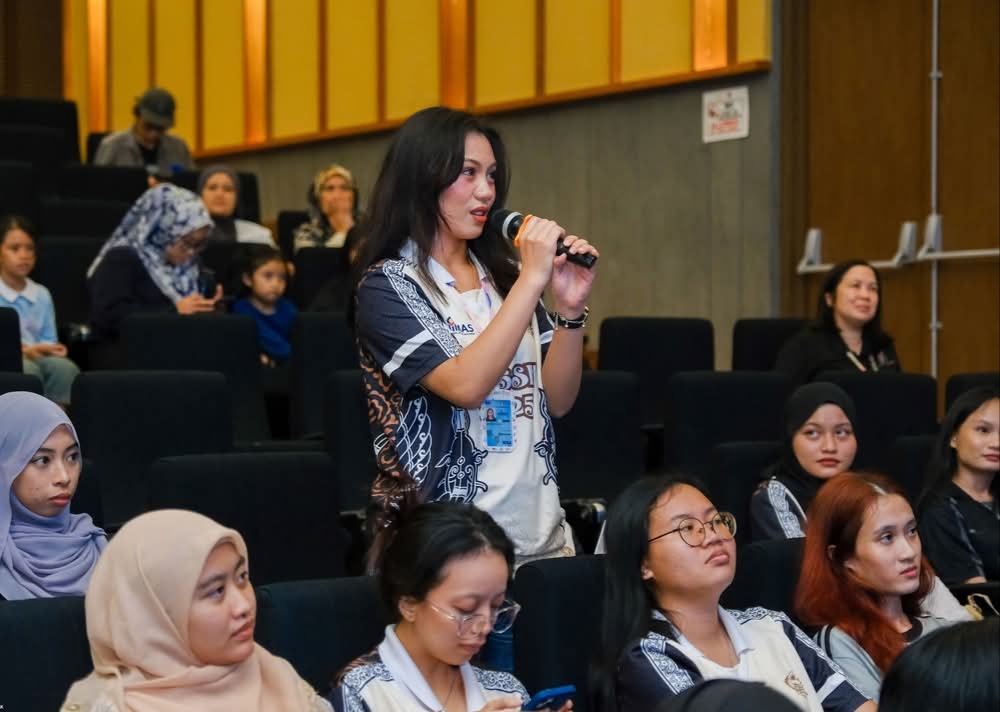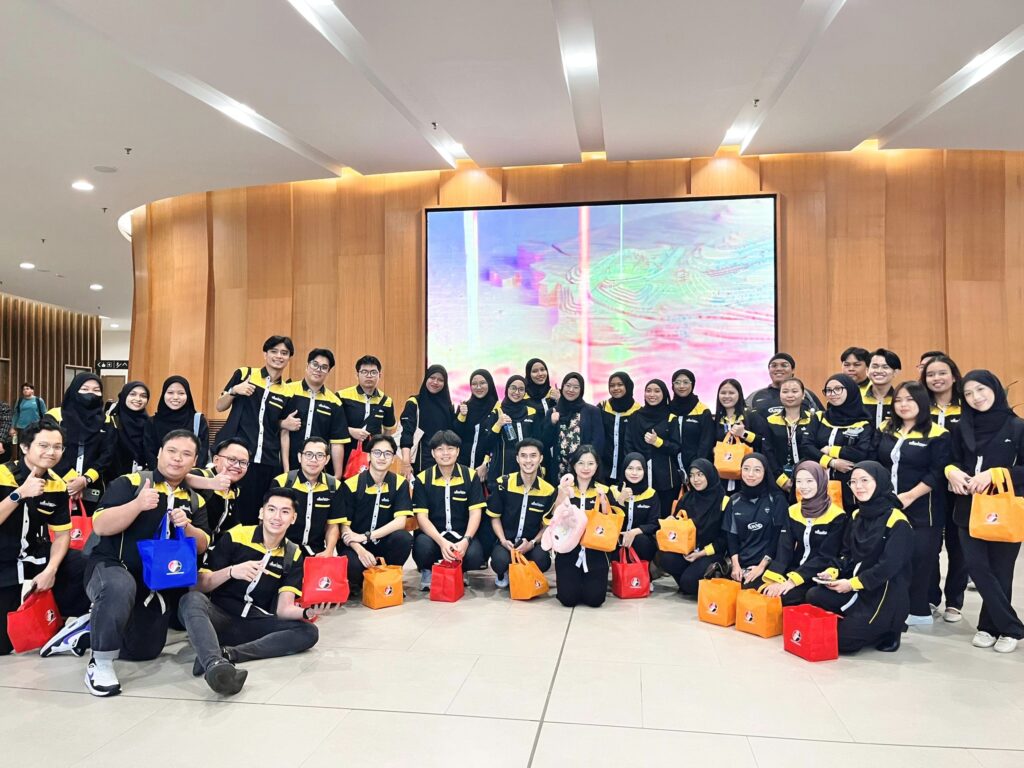Written by Dayang Hajyrayati Awg Kassim
The Anthropology and Sociology Program, Faculty of Social Sciences and Humanities (FSSK), Universiti Malaysia Sarawak (UNIMAS), was honoured to receive an invitation from the Borneo Cultures Museum (BCM) to participate in two meaningful experiential learning initiatives designed to engage local institutions of higher learning with Sarawak’s cultural and historical legacy. These programs offered Anthropology and Sociology students an immersive opportunity to deepen their understanding of heritage, history, and policy through real-world exposure. Both visits were accompanied by the Program Coordinator for Anthropology and Sociology, UNIMAS, Dayang Hajyrayati Awg Kassim.

The first program was held on 18 May 2025 in conjunction with International Museum Day 2025 (Sarawak Level), where 40 first-year students participated in the Higher Education Engagement Program at BCM. The museum curated three themed learning sessions that invited students to explore heritage from interdisciplinary perspectives. The first session, Papan Turai Gawai Batu 517: A Pillar of Sarawak’s Cultural Legacy and Historical Evolution, examined how material culture such as the traditional wooden board (papan turai) can serve as a historical narrative tool reflecting ethnic identity and cultural continuity. The second session, Tracing Historical Archaeology: Niah Caves, focused on archaeology as a means to reconstruct the social organisation and lifeways of early human communities, especially within the context of Sarawak’s prehistoric past. The third session, Triso’s Whale: A Conservation Story from Sea to Shore, highlighted ecological conservation efforts linked to maritime heritage and environmental responsibility. These sessions enriched the students’ classroom learning with direct exposure to issues intersecting anthropology, sociology, ecology, and historical preservation.
The second program, Program Bicara Warisan: Pemuliharaan dan Pemeliharaan Warisan (Heritage Discourse Program: Conservation and Preservation of Heritage), was held on 23 June 2025 and attended by 35 second-year students from the same program. This session featured two expert talks. The first was delivered by Mr. Nicholas Daby, Curator and Head of the Conservation Section (Monuments and Sites) at the Sarawak Museum Department. Titled Pemuliharaan dan Pemeliharaan Warisan, his presentation provided an in-depth look at conservation frameworks and practices currently applied to heritage buildings in Sarawak, using Fort Emma as a living example of adaptive restoration. The second talk was presented by Mr. Faiz, who focused on the Sarawak Heritage Ordinance 2019, offering students a section-by-section overview of the legal provisions that guide the protection, registration, and sustainable management of heritage sites in the state. His emphasis on regulatory clarity and community roles demonstrated how heritage preservation is both a legal duty and a collective responsibility.

These programs directly reflect the Anthropology and Sociology Program’s mission to ground theoretical knowledge in lived realities and to cultivate socially conscious graduates who are critically aware of their cultural environment. Through museum-based learning, students were able to apply qualitative research skills such as observation and narrative analysis in authentic settings, engage with questions of identity and memory through heritage materials, and explore the connection between policy and cultural preservation. These initiatives are also aligned with several United Nations Sustainable Development Goals (SDGs), particularly SDG 4 (Quality Education), by promoting inclusive and experiential learning; SDG 11 (Sustainable Cities and Communities), through efforts to safeguard cultural heritage and local identity; and SDG 17 (Partnerships for the Goals), by fostering collaboration between academic institutions and cultural agencies to strengthen knowledge sharing and community engagement.
“These engagements demonstrate how museums today are more than just repositories of artefacts, in fact they are vital spaces for education, dialogue, and community connection,” said Dayang Hajyrayati Awg Kassim, Coordinator of the Anthropology and Sociology Program. “We are grateful for BCM’s initiative to include higher education institutions such as UNIMAS in their outreach, and we hope this collaboration continues to grow. It is through such partnerships that students can truly appreciate the richness of Sarawak’s heritage while shaping their understanding of society through the lens of anthropology and sociology.”

FSSH – A partner for social change!